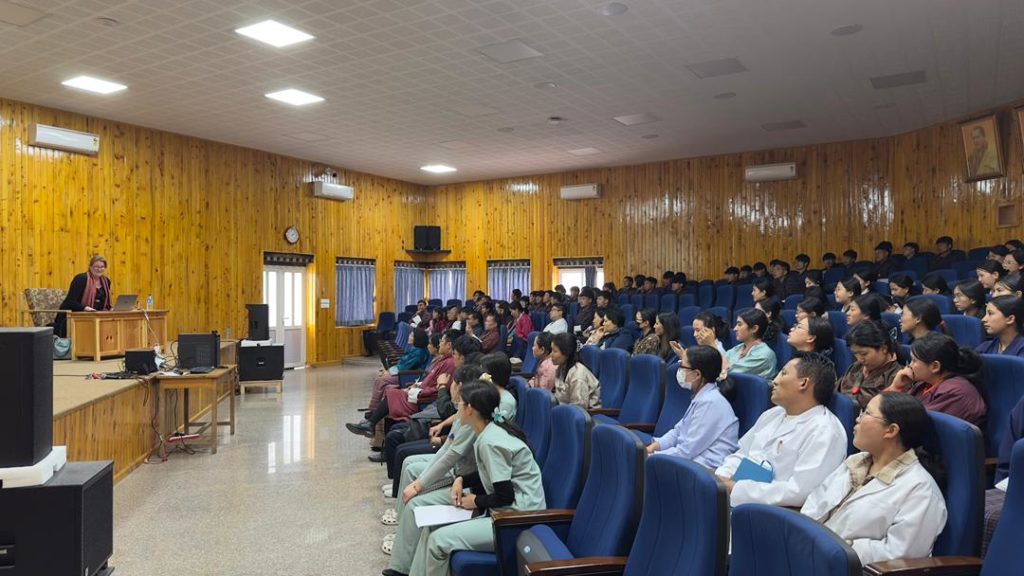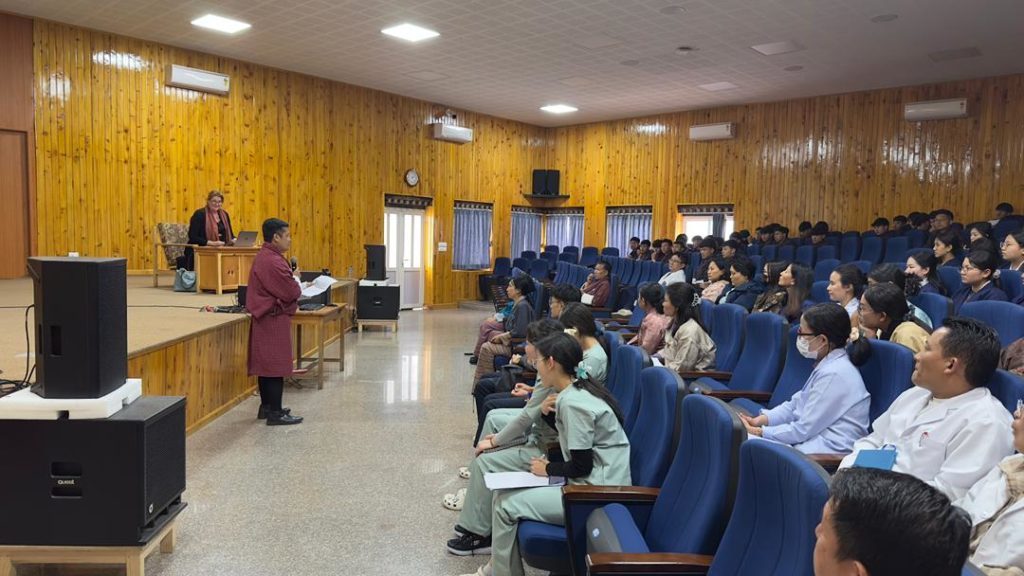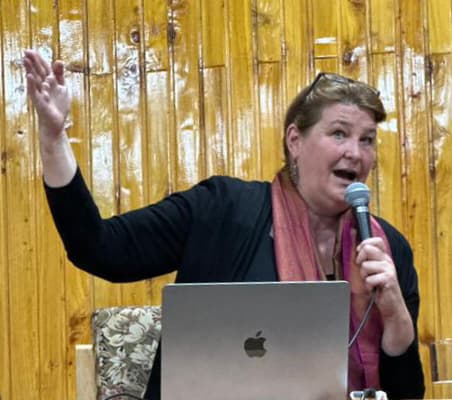Today, Khesar Gyalpo University of Medical Sciences of Bhutan (KGUMSB) hosted a talk titled “A Neuroscience Perspective on the Training of Compassion in Medicine: How to Shift from Empathic Distress to Compassion and Resilience” by Prof. Dr. Tania Singer, Head of the Social Neuroscience Lab at the Max Planck Society, Berlin in Germany.
In her talk, Prof. Singer addressed the rise in mental health challenges during the COVID-19 pandemic and introduced a scalable, app-based 10-week online program designed to alleviate these issues. The program compares the effectiveness of classical mindfulness training with a partnership-based socio-emotional method known as Dyad training.
She engaged the audience in practicing Dyads-a daily 15-minute partner-based meditation technique carried out over several weeks. These exercises foster emotional regulation, connectedness, and resilience.
A central theme of her presentation was the distinction between empathy, empathic distress, and compassion, and how healthcare professionals can be trained to shift from empathic distress to compassion in order to maintain emotional well-being and resilience.
Finally, Prof. Singer emphasized the broader applicability of such interventions, highlighting how these evidence-based and scalable practices can support healthy digitalization and are now being extended to other sectors such as education and healthcare.
The talk was organized by Medical Education Centre for Research, Innovation and Training (MECRIT) at KGUMSB in collaboration with Centre for Bhutan & GNH Studies (CBS) in Thimphu at the Multi-purpose hall of Faculity of Nursing and Public Health (FNPH). About 150 participants including the faculties of KGUMSB, staff of JDWNRH and the students attended the program.



